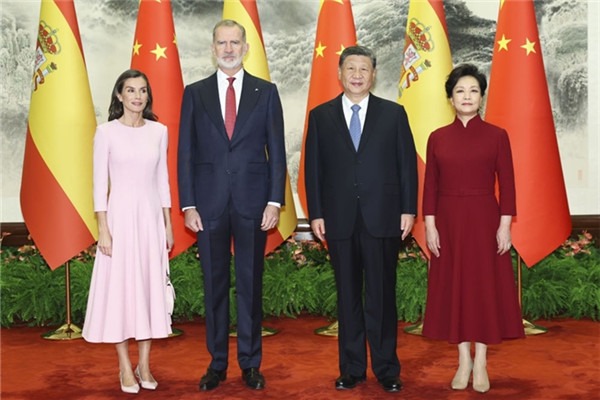Retired medical workers urged to support seniors

Chinese authorities have launched a nationwide initiative to mobilize retired medical workers to serve in integrated medical and elderly care institutions, as well as nursing homes, in a bid to address the growing care demands of a rapidly aging population, according to a notice released by the National Health Commission and four other government bodies last week.
Ten provincial-level regions, including Beijing, Chongqing and the provinces of Hebei, Jilin and Jiangsu, have been designated as pilot zones for the program. These regions are tasked with developing models that can be replicated and scaled up nationwide.
The initiative, which operates on the principle of voluntary participation and mutual selection, aims to align the service needs of care facilities with the expertise and willingness of retired medical professionals. Eligible participants include doctors, nurses, pharmacists, technicians and administrative workers who are in good health and hold relevant professional qualifications.
The retired workers will be encouraged to provide a wide range of services, including diagnosis, rehabilitation, nursing, pharmaceutical care, hospice care, laboratory testing, nutrition and mental health support, as well as health education and management.
The integration of medical and elderly care has become an important strategy for China to tackle its demographic shift. By the end of 2024, the number of Chinese citizens age 60 and above had reached 310 million, accounting for 22 percent of the total population. The ratio is expected to reach 30 percent by 2035.
Data from the commission shows that China has more than 78,000 institutions providing integrated medical and elderly care services, offering a total of 2 million beds. The number of partnership agreements between medical and elderly care institutions nationwide has reached 87,000.
Authorities hope that by the end of 2027, every county-level region will have at least one institution capable of delivering integrated medical and elderly care services.
Under the new initiative, integrated institutions are encouraged to strengthen ties with local hospitals, particularly those specializing in geriatric medicine, rehabilitation, nursing and hospice care, and to recruit qualified retirees to work in these settings.
Medical institutions are also encouraged to assist retired professionals in their efforts to deliver public health services, basic medical care, home visits and home-based bed care at partnered elderly care facilities. Retirees may also be stationed regularly at in-house clinics within these institutions based on demand.
Veteran medical workers will contribute to early screening, intervention and management of chronic diseases among the elderly, while also providing health consultations, pharmaceutical guidance and general health promotion services.
They may also offer training in geriatric medicine, emergency care, hospice care and traditional Chinese medicine services, helping to enhance the overall management capacity of integrated institutions.
These institutions are required to sign formal employment agreements with rehired retirees, protecting their rights to remuneration, rest periods, leave and other basic entitlements.
"Remuneration shall be determined through negotiation between the two parties, taking into account factors such as the nature of the position, professional titles, individual competencies, work performance and local salary benchmarks in the healthcare sector," the notice said.
Institutions are also encouraged to offer flexible working hours and paid leave to rehired retirees. They may provide discounts or financial support for retired medical personnel or their immediate family members who reside in the institution.
Wei Qingzhuo, a retired medical professional from a hospital in Dezhou, Shandong province, has been working at a private elderly care center in Beijing for several years. He initially moved to Beijing to accompany his daughter and decided to leverage his medical expertise to earn additional income.
In an interview with the newspaper Health News, Wei said he earns a monthly salary of around 9,000 yuan ($1,264).
"While the income may not be particularly high, the convenient commute — just a 10-minute bike ride from home — coupled with the harmonious work environment, holds strong appeal for me," he said.
- Retired medical workers urged to support seniors
- Typhoon Fung-wong makes landfall in Taiwan
- Police seek clues on illegal activities of Taiwan secessionist social media influencers
- Experts call for cooperation on tech upgrades
- Framework seeks to keep AI in line
- Games mascots steal the spotlight with their athletic fin-esse





































